Russia Opposition Claims Mass Fraud After Putin Party Sweeps Vote
Russia's opposition accused the authorities of mass voter fraud after election results Monday showed the ruling United Russia party winning a sweeping majority in parliament.
The three-day vote that ended on Sunday followed an unprecedented crackdown on critics of President Vladimir Putin and came with pre-election polls showing United Russia's popularity at a historic low.
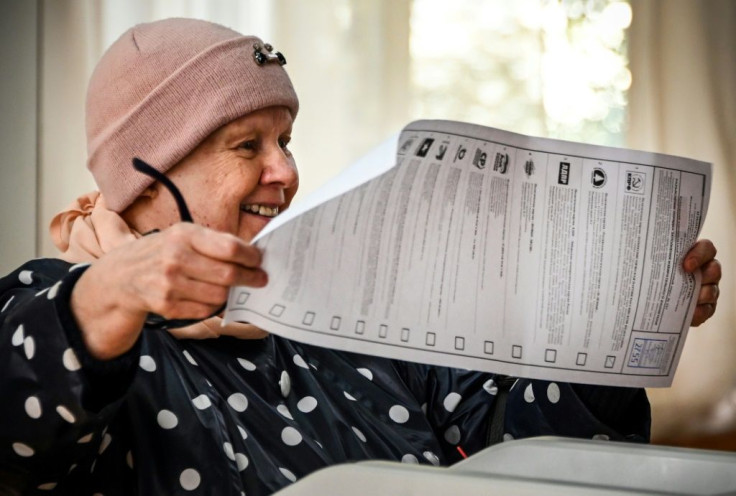
But the party still claimed a two-thirds majority in the lower house State Duma, with United Russia's Andrei Turchak saying it was a "convincing and clean victory".
He told reporters United Russia had taken enough seats from both the party and single-mandate lists to have more than 300 of the Duma's 450 seats.
With nearly all votes counted by Monday afternoon, United Russia was ahead with 49.8 percent of the vote followed by the Communist Party with 18.9 percent.
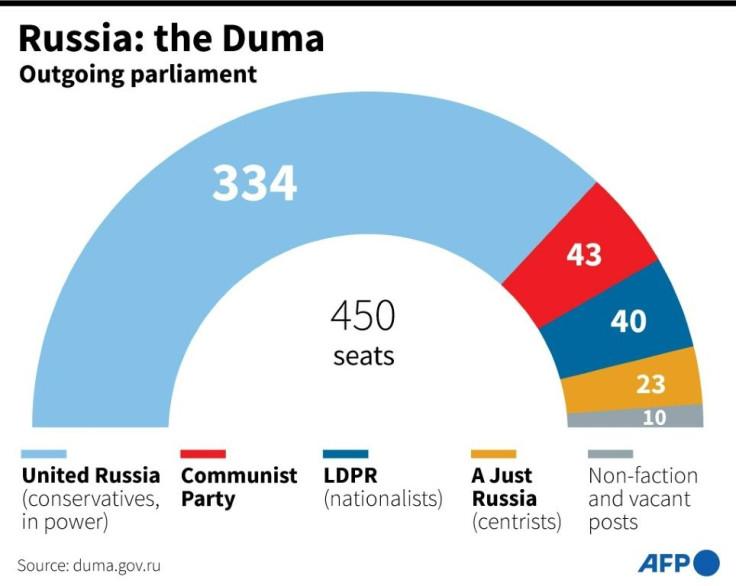
Election chief Ella Pamfilova said final turnout was 51 percent, telling Putin in a televised meeting that this was higher than in previous elections and there had been fewer complaints of vote violations than ever before.
"I would like to address special words of gratitude to the citizens of Russia (and) thank you for your trust, dear friends," Putin said during the meeting.
Predictions by state-run pollsters had suggested United Russia winning only around 30 percent.
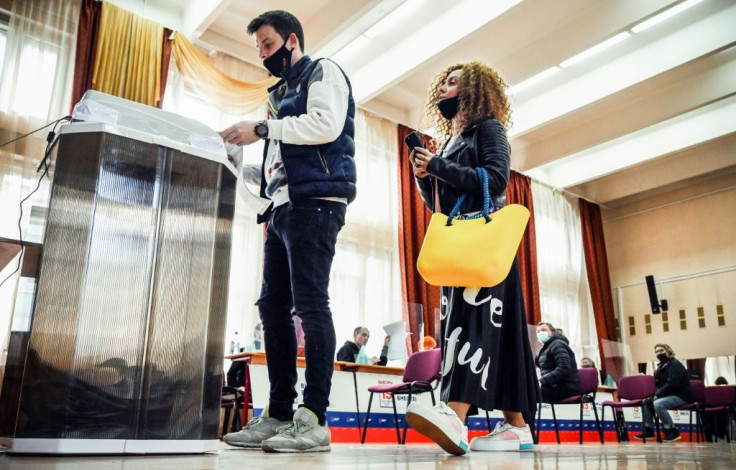
Kremlin spokesman Dmitry Peskov hailed the "competitiveness, openness and honesty" of the elections, saying it was clear that "United Russia is the main preference of the voters".
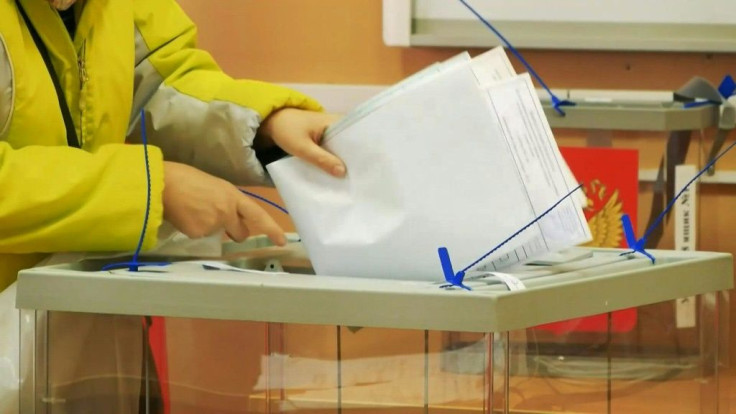
But allies of jailed Kremlin critic Alexei Navalny, Russia's leading opposition figure, called the results outlandish.
"This is truly unbelievable. I remember the feeling in 2011, when they stole the election. The same is happening right now," said Navalny's spokeswoman Kira Yarmysh.
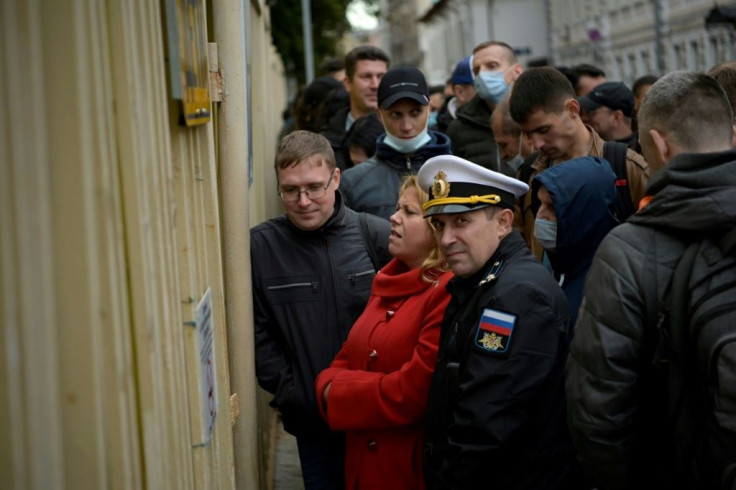
Claims of widespread fraud in 2011 sparked huge protests led by Navalny, who was arrested last January and jailed on old fraud charges following a poisoning he blamed on the Kremlin.
His allies said the vote was being falsified on a massive scale, pointing especially to delays in releasing a breakdown of the results of electronic voting in opposition-friendly Moscow.
The European Union said the elections had suffered from intimidation and limited "credible" monitoring, while Germany asked for fraud claims to be "clarified".
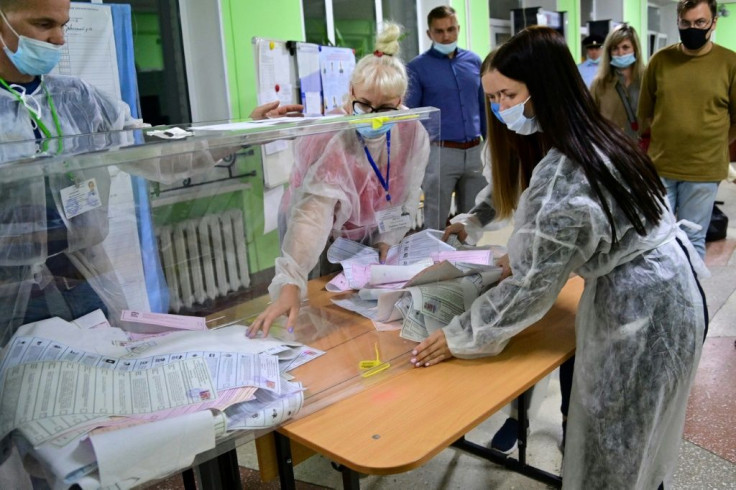
London called Russia's polls a "serious step back" for democracy and the United States said the crackdown on critics "prevented" Russians from exercising their civil rights.
Navalny's organisations were banned as "extremist" ahead of the election, his top allies were arrested or fled, and anyone associated with his groups was kept from running.
Navalny's team had called for opposition supporters to back other candidates who could potentially defeat United Russia, most of them from the Communist Party, and results indicated the "Smart Voting" campaign may have had some impact.
United Russia's share of the vote was down from 54.2 percent in the last parliamentary election in 2016, while the Communists saw their support grow from 13.3 percent.
Three other parties appeared to meet the five percent threshold needed to enter parliament -- the nationalist LDPR, the recently formed "New People" party, and "A Just Russia", all with less than 10 percent.
Navalny's top aide Leonid Volkov said it was clear mass falsifications had taken place and called for results to be overturned and recounted in Russia's two biggest cities.
"It is impossible to recognise the results in Moscow and Saint Petersburg. It was dirtier and worse even than in 2011," he said in a post on Facebook.
Volkov did not call for immediate demonstrations but said Navalny's team would "support any peaceful protest action" aimed at overturning vote fraud.
On Monday evening, a couple of hundred people gathered in central Moscow to protest the election results, an AFP journalist reported from the scene.
The gathering organised by members of the communist party was monitored by the police but there were no immediate detentions.
"Russia will be free," the crowd chanted, a slogan popularised by Navalny.
Authorities had taken drastic measures to deter the "Smart Voting" campaign, repeatedly shutting down and blocking websites and apps providing lists of candidates with the best hope of defeating Kremlin-aligned politicians.
Critics had argued that online voting, new limits on election observers and the polls being spread over three days -- a move officials said was to reduce coronavirus risks -- all presented opportunities for fraud.
© Copyright AFP 2024. All rights reserved.



















